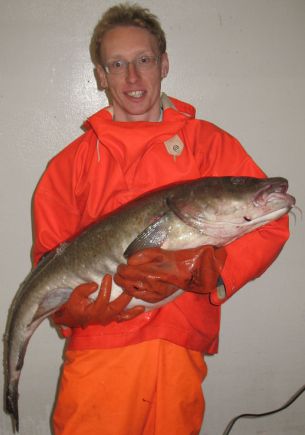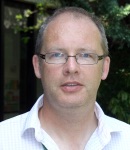Training Course Funded by NERC
Monday 20th to Friday 24th February 2017
Are you a researcher in the biological sciences?
Would you like to know more about mathematical modelling?
This course will equip you with the concepts and basic skills of mathematical and statistical modelling.
You will be guided through the key steps of researching the question, formulating model frameworks, parameterisation and integrating data, and performing model criticism.
Our course tutors have a mixture of physical and life science backgrounds.
Overview
- Where?
- University of Stirling, School of Natural Sciences
- When?
- Monday 20th to Friday 24th February 2017 (5 days)
- Who?
- PhD students and early-stage researchers (below, "students") with a biological background who wish to develop interdisciplinary skills in mathematical modelling for the life sciences.
- Cost?
- Free! There are 25 fully funded places covering the costs of the course registration fee, travel, accommodation and food for the week. Priority will be given to those participants who are at least 50% funded by NERC. There are an additional 5 places for which there is no registration fee but attendees will have to pay for their own travel, accommodation and food.
- Course aims:
- Students in the biological sciences are increasingly turning to mathematical modelling in the era of big data, the three Rs of animal testing, and remote sensing. However, they often lack the background necessary to create their own mathematical or statistical models. This course, run by mathematicians, physicists and ecologists with experience in epidemiology and terrestrial and marine ecology, will provide an introduction to basic modelling concepts and a guide to using common skills. You will be guided through the key steps of researching the question, formulating the model framework, parameterising the model, and model criticism.
Programme Overview
Each day will be split between morning lectures (which will introduce mathematical techniques in conjunction with biological case studies) followed by afternoon computer-lab practical sessions to put into practice the concepts covered in the morning.
Exercises and lectures will make use of Matlab or R. Both are commonly available (R is freeware) and flexible enough to demonstrate all relevant techniques. The course tutors have a variety of expertise in other platforms (e.g. C++, Mathematica, etc.) and can advise students with specific needs.
Through the second half of the week, students will also work on individualised projects (either developed themselves or with guidance by the lecturers). Our high staff–student ratio will allow close supervision of the students and individual development of these mini-projects using the techniques that are most appropriate for their own research goals. We will also provide a personalised further-reading programme and identify collaborators to enable development of their project beyond the course week for those interested.
Course materials will be provided long-term via a secure website, including lecture notes and computer code samples.
The Course Team
-

Prof. Rachel Norman
Professor of Aquatic Food Security -

Dr Darren Green
Senior Lecturer in Aquatic Health Modelling -

Prof. Adam Kleczkowski
Professor of Mathematics -

Dr Bruce McAdam
Lecturer in Environmental Modelling -

Dr Andy Hoyle
Senior Lecturer in Mathematics -

Dr Anthony O'Hare
Lecturer in Mathematical Modelling and Aquatic Food Security
The course team have a background in different aspects of mathematical biology and use a range of modelling and statistical techniques. The team includes both mathematicians and physicists who apply modelling to environmental and epidemiological problems (Norman, Hoyle, Kleczkowski, O'Hare) together with ecologists who make rigorous use of mathematical and statistical techniques (Green, McAdam). This provides participants with an opportunity to learn from lecturers with a variety of backgrounds and modelling philosophies.
All the course team are part of the University of Stirling's School of Natural Sciences. This is an interdisciplinary school, which encourages the use of mathematics and computing science to carry out problem-focused research.
Course Outcomes
This course will equip students with the skills to:
- Abstract and frame their biological research questions in the form of mathematical models, and to interpret and critically evaluate the results of both their own models, and those of other authors.
- Use generic modelling and programming environments to construct and analyse their own mathematical models.
- Understand the link between models and data analysis, and to use model parameterisation to both inform models, and to estimate unknown properties of the ecological system.
- Understand approaches to modelling space as a key component of environmental modelling. One morning will be devoted specifically to spatial models, using networks as a flexible approach.
The course will also develop the transferable skills of young researchers, namely:
- Interdisciplinary thinking and the ability to collaborate with researchers in other disciplines.
- Logical thinking and critical analysis.
- Presentation of complex research findings to a non-expert audience.
Concrete outputs of attendance will include:
-
Development of a personal research project of interest to the researcher.
- Students will leave the course having taken the first steps in trying to model their system in a way that is appropriate for the questions they wish to ask.
- While the projects will be individual, students will be encouraged to discuss their systems and exchange ideas and approaches at all stages of project planning, development, and final presentation.
- Provision of a tailored further reading list and possible contacts for local collaboration.
- Provision of detailed study notes and example program code.
Links
- NERC
- University of Stirling, School of Natural Sciences
- University of Stirling, Campus Tour
- Visit Stirling
- The R Project for Statistical Computing (includes free download)
- Mathworks (the home of Matlab)
- GNU Octave (Matlab-like environment, includes free download)
- Course Materials (for registered participants only)
How To Apply
To apply
Send a one-page document by 1st December 2016 which includes
- Your name
- Your institution
- Your funding body (in particular whether you are at least 50% funded by NERC)
- Contact details
- A brief summary of your research area
- And a brief discussion of why this course would benefit you
to
Dr Anthony O'Hareanthony.ohare@stir.ac.uk
Computing Science and Mathematics
School of Natural Sciences
University of Stirling
Stirling
United Kingdom
+44 (0)1786 46788
Any enquiries in advance of application are very welcome.
